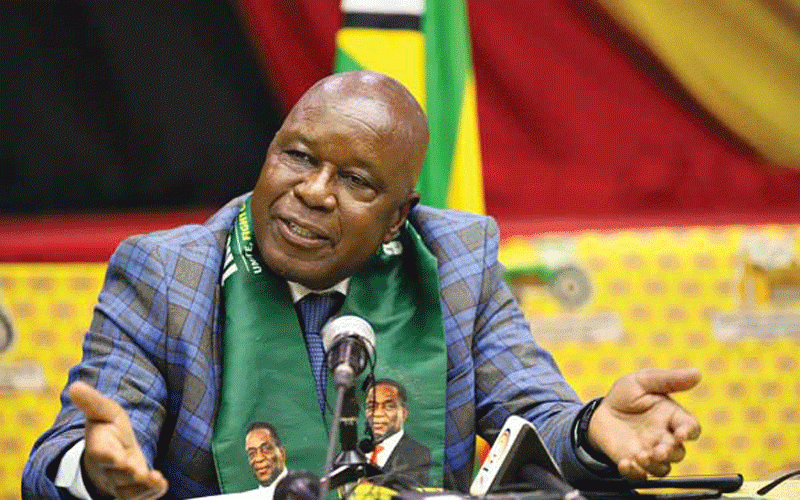
On March 11, 2020, the World Health Organisation announced that coronavirus infection was officially a pandemic, meaning that it was now a global scourge that was spreading in various countries faster than containment could halt it.
Along with that announcement, people were talking about quarantine, social isolation and lockdown.
The Zimbabwean lockdown became operational on March 30.
Done correctly, this is a noble action that brings relief if the COVID-19 spread is to be contained.
The first day of the lockdown saw a lot of people defying the order to stay at home, with some people roaming the streets.
That was really uncalled for considering how calamitous the virus is. Why do people need police to use baton sticks on them for simple orders that benefit the whole nation?
Blaming the law enforcement agents on such national issues will be grossly unfair and moronic.
People should just stay at home, except for a few exempted ones that offer critical services like the medical staff, security agents, drivers, etc.
- Chamisa under fire over US$120K donation
- Mavhunga puts DeMbare into Chibuku quarterfinals
- Pension funds bet on Cabora Bassa oilfields
- Councils defy govt fire tender directive
Keep Reading
The United Kingdom (UK), United States (US), European Union and many other countries are in some degree of lockdown, with restaurants, bars, shops, schools, gyms closed.
South Africa has also locked down because it now has more than 1 200 confirmed cases of COVID-9. Zimbabwe has tested fewer suspected cases and today, eight cases have been detected, four of which are in Ruwa alone.
It is very much important for Ruwa people to, thus, observe social distancing and lockdown as the virus is on their backyard. Staying at home avoids catching the virus or spreading the COVID-19, which usually disappears from our systems after about two to three weeks.
Social distancing is an adorable and winsome intervention to help the individuals stay healthy, and to shatter the chain of transmission, thus giving the more vulnerable population a fighting chance of surviving the pandemic.
Medically, lockdowns are of paramount importance because they reduce the reproductive number, that is, the number of people each confirmed case can infect.
The goal is to keep the reproduction number at less than one, thus bringing the transmission to a complete halt. This can be achieved through two processes:
Mitigation — Slowing but not necessarily stopping epidemic spread. Peak healthcare demand can be reduced while protecting those who are most at risk of severe disease from infection. This is done by isolating suspected cases and their households and social distancing the elderly and people at highest risk of serious illness.
Suppression — This aims to reverse epidemic growth, reducing case numbers to low levels by social distancing the entire population. Schools, universities, bars are closed.
Epidemiologists have postulated that without social distancing and lockdowns, peak mortality from COVID-19 will be in the next three months. What does it mean?
This means real disaster lies ahead, more deaths of our beloved ones are still ahead, the real catastrophe is still ahead.
In this scenario, about 80% of the UK and US populations would be infected with a possibility of more than 510 000 deaths in the UK and 2,3 million deaths in the US. However, isolating suspected and confirmed cases would reduce peak critical care demand by more than 66% and reduce deaths by 50%.
This means that a combination of quarantine, social distancing and lockdown is a prerequisite if anti-COVID-19 war is to be won. That is what we can easily afford in Africa where resources are surely scarce. Zimbabwe surely needs these raft of measures if our morbidity and mortality are to remain suppressed.
Italy on February 23, 2020 had only five confirmed cases with no single death, but alas, five weeks down the line, Italy has more than 102 000 cases, with the highest fatalities of more than 11 600.
The Italians at first resisted lockdowns and social distancing. China succeeded in containing the virus as it locked Hubei on January 23, 2020, resulting in 11 million people being quarantined.
The residents of Wuhan were not allowed to leave the city without clearance. Now eight weeks later, the city has reopened and people are back at work.
Zimbabwe’s scenario needs serious co-operation if the war against COVID-19 is to be won.
With limited hospital facilities in our country, it is prudent that we avoid contracting the virus from the first place.
Complicated cases of COVID-19 present with respiratory distress because of lung fibrosis.
Advanced life support equipment will be required in order to save life. With limited ventilators in our hospitals, where will you go?
Let us all abide by the gazetted laws. Simply stay at home during the lockdown!
Dr Johannes Marisa is a medical practitioner, an educationist and public health practitioner who can be accessed on [email protected].











